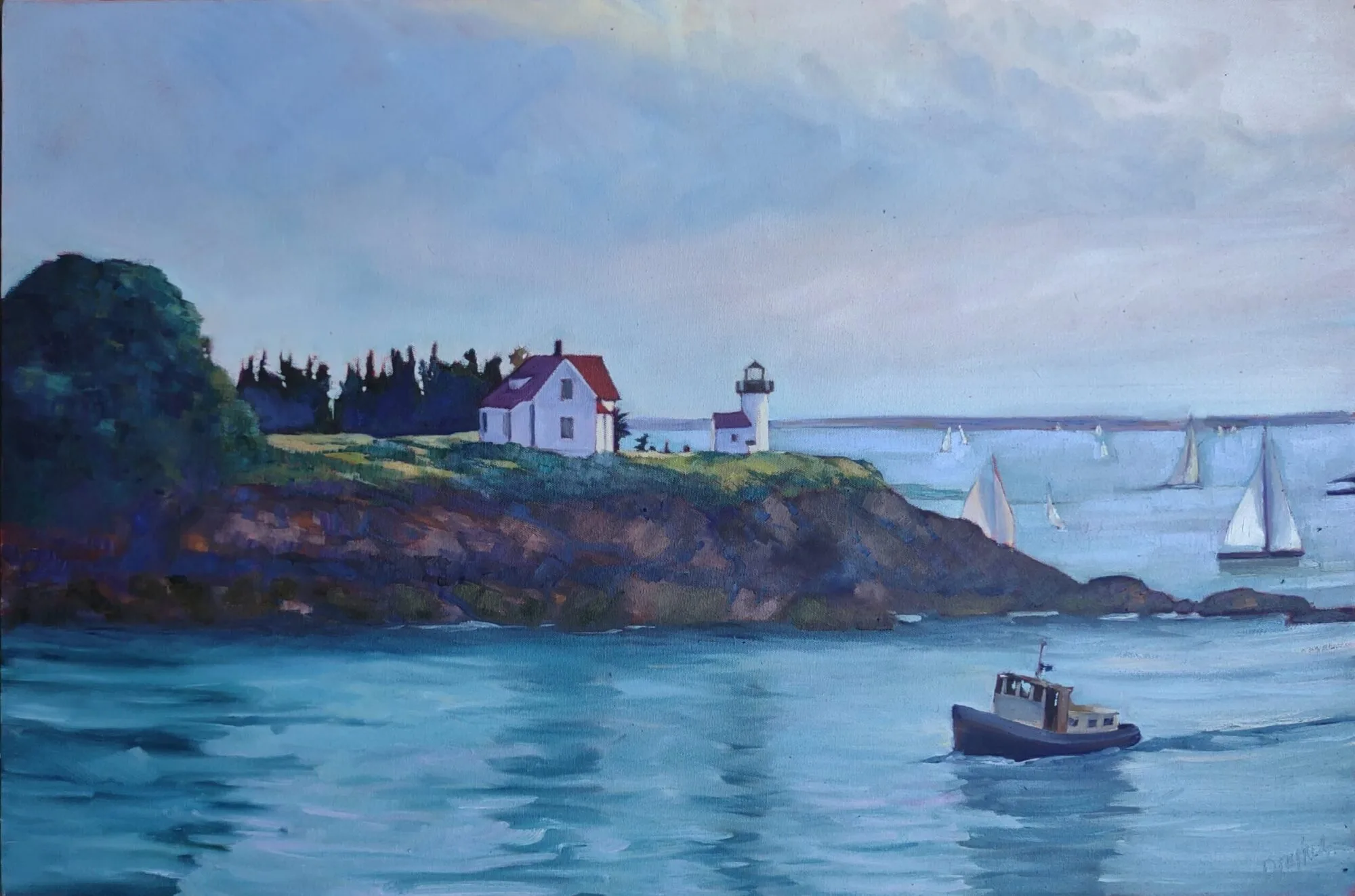Mary Byrom is doing something she calls chunking, which is concentrating on a single problem every day in small studies, which take her about 20 minutes. “It could be color temperature, or composition, or line, or whatever you are working on and thinking about,” she explained to me. Since the human brain takes in information best in small units, her idea makes sense to me.
I think I do something similar when I do short value studies. To me, composition—form—is the overriding question, so I’m always drawing little thumbnails to try to get better. I don’t really worry if they look like anything; they’re only to sort out the problem of dividing the canvas in an interesting way.

“End of Day,” by Carol L. Douglas (sold).
When I arrived at Ogunquit on Saturday, I did not walk the Marginal Way with a camera or mechanical viewfinder. In fact, I only took one photo all weekend, and it was of sunbathers curled up with their Kindles.
Instead, I carried my wee little Sketch-N-Can. When a location called to me, I stopped for a moment to absorb it through my pores, and then did a value sketch or two.
It didn’t matter that I ended up using none of these sketches for my final paintings. I understood Ogunquit’s particular rock formations a lot better than when I’d arrived.
This event had just five painters. These small events are my particular favorites because they allow the artists a chance to really talk to each other. (In addition to Mary Byrom, there were Kathy Morrissey, John Caggiano, and Frank Costantino.)
I enjoy the snippets of conversation I hear when painting, and the Marginal Way is perfect for that. There is always speculation on how much houses cost, or how people could escape their workaday lives and move to Maine. On the other hand, many people talk about work. Others talk about their kids. In a family destination, there’s always a lot of real-time child-rearing going on as well.
These young parents reminded me all too poignantly of the years when I walked the Marginal Way with my own kids, telling them to stay off the rocks, to hold my hand, to say thank you to the nice lady. At first I was uncomfortable with the depth of feeling it evoked. Eventually, it was just sweet to hear echoes of my own parenting days. In some ways, the Marginal Way is a metaphor for life: a cavalcade, a passing parade, in which our own appearance is terribly brief. Best to use it well.
And then there was the hung-over voice behind me that told his pal, “I really didn’t have an affair with her, you know.” It was a perfect short story in ten words, and I don’t need to know how it ended.



